The Role of Native and Non-Native Teachers in Selecting Children’s Literature by Native Authors
by Trisha Moquino, Debbie Reese, Tiffany Jewell, Katie Kitchens, and Laini Szostkowski
This paper brings Indigenous and non-Indigenous researchers and educators together to examine the pedagogical potential of listening to child protagonists in Indigenous picturebooks and extending this praxis to listening to children in classrooms. Our team makes up the Books to Build On: Indigenous Literatures for Learning project, an interactive searchable database with over 300 texts and 150 teaching and learning ideas. This project, led by Aubrey Hanson and Erin Spring and founded in 2018, aims to connect educators with Indigenous texts for their classrooms. For Hanson and Spring, the Books to Build On resource stems from a need to “assist educators with weaving Indigenous ways of being, connecting, doing, and knowing into their teaching and learning by starting with story” (2024).
This article begins with the understanding that story facilitates learning across the boundaries of age, culture, gender, and education. We suggest that picturebooks offer a smooth way of incorporating Indigenous teachings of orality into the classroom and illustrate the nuances of oral teachings. Because listening as an act requires our participation as both listener and storyteller, this relationship decenters us as individuals and positions us as part of a larger whole. Acknowledging children as important, responsible, and agential aligns us with cross-cultural Indigenous teachings that regard children as contributing members of community.
We visit Michaela Goade’s Berry Song (2022) as an example of listening to child protagonists and the possibilities of assessing Indigenous picturebooks as teaching tools. Finally, we center the decolonial work of listening to children inside and outside of texts. This article argues that Indigenous story, particularly through picturebooks, serves as a powerful tool for bridging cultural, generational, and educational divides, while also facilitating the integration of Indigenous oral traditions into the classroom. By examining the role of listening as a reciprocal act between storyteller and listener, we emphasize the importance of acknowledging children as active, responsible participants in their communities and recognize that Indigenous picturebooks provide unique opportunities for decolonial pedagogy. This, in turn, allows for a teaching approach that centers children’s voices and their roles within broader cultural narratives.
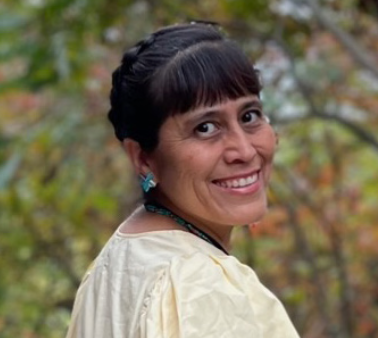 Trisha Moquino is from the Native Nations of Cochiti, Kewa & Ohkay Owingeh. She is a teacher, author, and scholar who co-founded the Keres Children’s Learning Center (KCLC) in Cochiti Pueblo, NM, where she serves as a Keres Speaking Montessori Guide for elementary children. Additionally, Trisha co-created the Indigenous Montessori Institute, where she works with adults to train the next generation of educators in Indigenous Montessori pedagogy. Currently working on several writing projects, Trisha’s debut picture book is set to be published by Candlewick Press in 2028. Represented by Lara Perkins at the Andrea Brown Literary Agency, Trisha weaves her passion for education into her writing, bridging the classroom and the page to celebrate and center Native Nations—their lifeways, languages, and Indigenous knowledge systems.
Trisha Moquino is from the Native Nations of Cochiti, Kewa & Ohkay Owingeh. She is a teacher, author, and scholar who co-founded the Keres Children’s Learning Center (KCLC) in Cochiti Pueblo, NM, where she serves as a Keres Speaking Montessori Guide for elementary children. Additionally, Trisha co-created the Indigenous Montessori Institute, where she works with adults to train the next generation of educators in Indigenous Montessori pedagogy. Currently working on several writing projects, Trisha’s debut picture book is set to be published by Candlewick Press in 2028. Represented by Lara Perkins at the Andrea Brown Literary Agency, Trisha weaves her passion for education into her writing, bridging the classroom and the page to celebrate and center Native Nations—their lifeways, languages, and Indigenous knowledge systems.
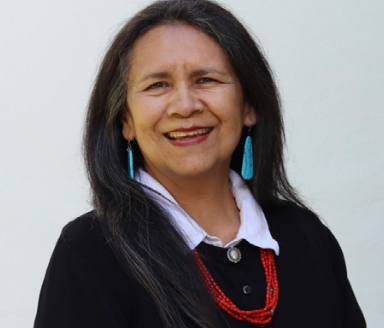 Tribally enrolled at Nanbé Owingeh, Debbie Reese studies and writes about depictions of Native peoples in children’s books. She has a PhD in Education from the University of Illinois and a Master of Library and Information Science from San Jose State. Her website, American Indians in Children’s Literature, is used by educators and librarians. As a mother and, now, as a grandmother, she keeps the well-being of Native children uppermost in her mind.
Tribally enrolled at Nanbé Owingeh, Debbie Reese studies and writes about depictions of Native peoples in children’s books. She has a PhD in Education from the University of Illinois and a Master of Library and Information Science from San Jose State. Her website, American Indians in Children’s Literature, is used by educators and librarians. As a mother and, now, as a grandmother, she keeps the well-being of Native children uppermost in her mind.
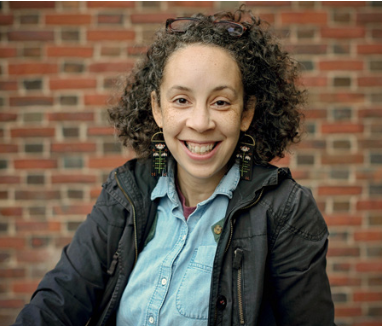 Tiffany Jewell is a mama, an educator, and the bestselling author of This Book Is Anti-Racist, The Antiracist Kid, and Everything I Learned About Racism I Learned In School. She grew up in Syracuse, New York and currently lives in Western Massachusetts with her young storytellers, her partner, a little dog with a big bark, and a turtle she’s had since she was 9 years old! Tiffany spends her days baking bread, searching for the most delicious chai lattes, and dreaming of a world that is truly fair and just.
Tiffany Jewell is a mama, an educator, and the bestselling author of This Book Is Anti-Racist, The Antiracist Kid, and Everything I Learned About Racism I Learned In School. She grew up in Syracuse, New York and currently lives in Western Massachusetts with her young storytellers, her partner, a little dog with a big bark, and a turtle she’s had since she was 9 years old! Tiffany spends her days baking bread, searching for the most delicious chai lattes, and dreaming of a world that is truly fair and just.
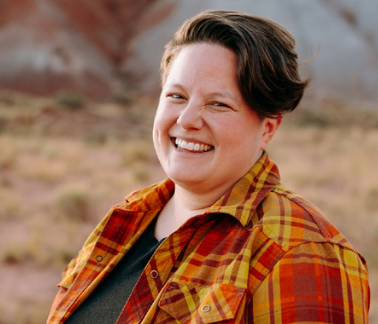
Katie Kitchens is a White, queer, Jewish parent, educator, and researcher. Their nearly 15 years as a classroom teacher and instructional coach in district, charter, and non-profit Montessori environments deeply informs their work and keeps them optimistic about the possibility for change. Katie’s research primarily focuses on White families who are striving to create antiracist family cultures.
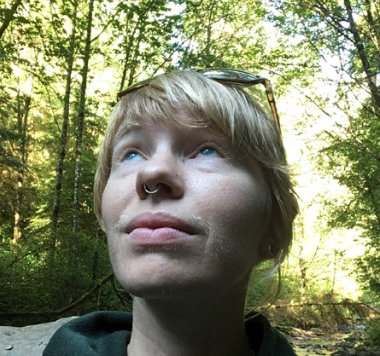 Alaina (Laini) Szostkowski (she/they) was born on the traditional homelands of the Massachusett people, whose present-day descendants are the Massachusett Tribe of Ponkapoag. Laini currently resides in Santa Fe, New Mexico on Tewa-speaking lands, and co-teaches with Trisha Moquino and an incredible community of Keres-language educators as the English-speaking Montessori Elementary and Adolescent Guide at Keres Children’s Learning Center in Cochiti Pueblo. Laini is honored to contribute to this paper alongside many mentors and inspiring folx.
Alaina (Laini) Szostkowski (she/they) was born on the traditional homelands of the Massachusett people, whose present-day descendants are the Massachusett Tribe of Ponkapoag. Laini currently resides in Santa Fe, New Mexico on Tewa-speaking lands, and co-teaches with Trisha Moquino and an incredible community of Keres-language educators as the English-speaking Montessori Elementary and Adolescent Guide at Keres Children’s Learning Center in Cochiti Pueblo. Laini is honored to contribute to this paper alongside many mentors and inspiring folx.